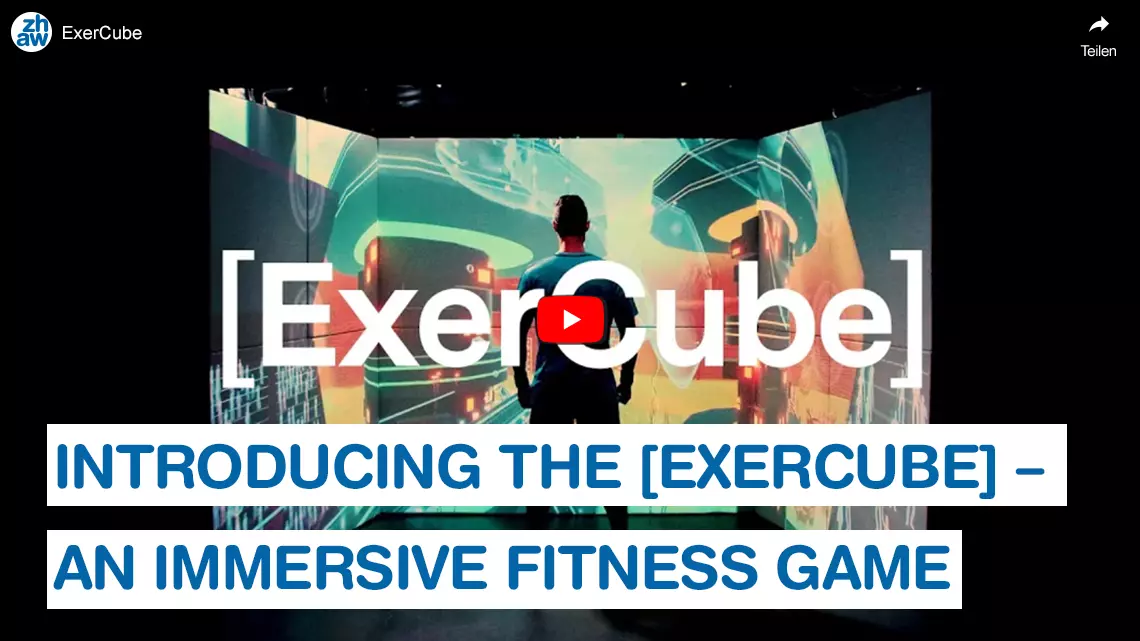Researchers test training cube for rehabilitative use
Developed by the Zurich-based startup Sphery, the ExerCube allows you to train in a playful manner. Researchers at the ZHAW Institute of Physiotherapy are investigating whether it is also suitable for use as part of rehabilitation programmes following a musculoskeletal injury.
Fitness training in the ExerCube feels like something out of a sci-fi film. The cube has an open side through which players enter. Once inside, a virtual environment is projected onto the walls. As they complete their training, players navigate a virtual world in which they have to avoid obstacles by doing side-steps, jumps, or burpees. This allows you to train your cognitive functions, including your reaction speed and concentration.
Evaluating the ExerCube’s potential
The ExerCube, which has been developed by Sphery, a spin-off of the Zurich University of the Arts (ZHdK), is currently primarily used in fitness centres. Researchers at the ZHAW Institute of Physiotherapy are now investigating whether it is also suitable for use as part of rehabilitation programmes following a musculoskeletal injury. To keep the risk of injury as low as possible, conventional rehabilitation programmes take place in a controlled environment in which the cognitive challenge faced by patients is minimal. Using the ExerCube, patients could possibly be challenged both physically and cognitively without exposing them to the risk of injury. This is according to the research team behind the project, which is funded by the digitisation initiative of the Zurich universities (DIZH). They also state that the flexible system has the potential to adjust the training to very accurately reflect a patient’s abilities. What’s more, the ExerCube’s built-in sensors collect a host of useful information and data, allowing patients to monitor their fitness progress.
Developing safe and effective training
The goal of the research project, in which the ZHdK is also involved, is to develop safe, effective and appealing rehabilitation units based on the existing ExerCube exercises that can be utilised by patients with anterior cruciate ligament injuries. In a next step, it will be investigated how appealing they are to patients as well as how effectively they enhance both physical and cognitive performance. To this end, the rehabilitative ExerCube fitness programme and the more basic home version will be compared with a conventional standardised exercise routine using a control group. The aim of the project is to make the ExerCube rehabilitation programme available in clinics, in fitness centres and at home.
